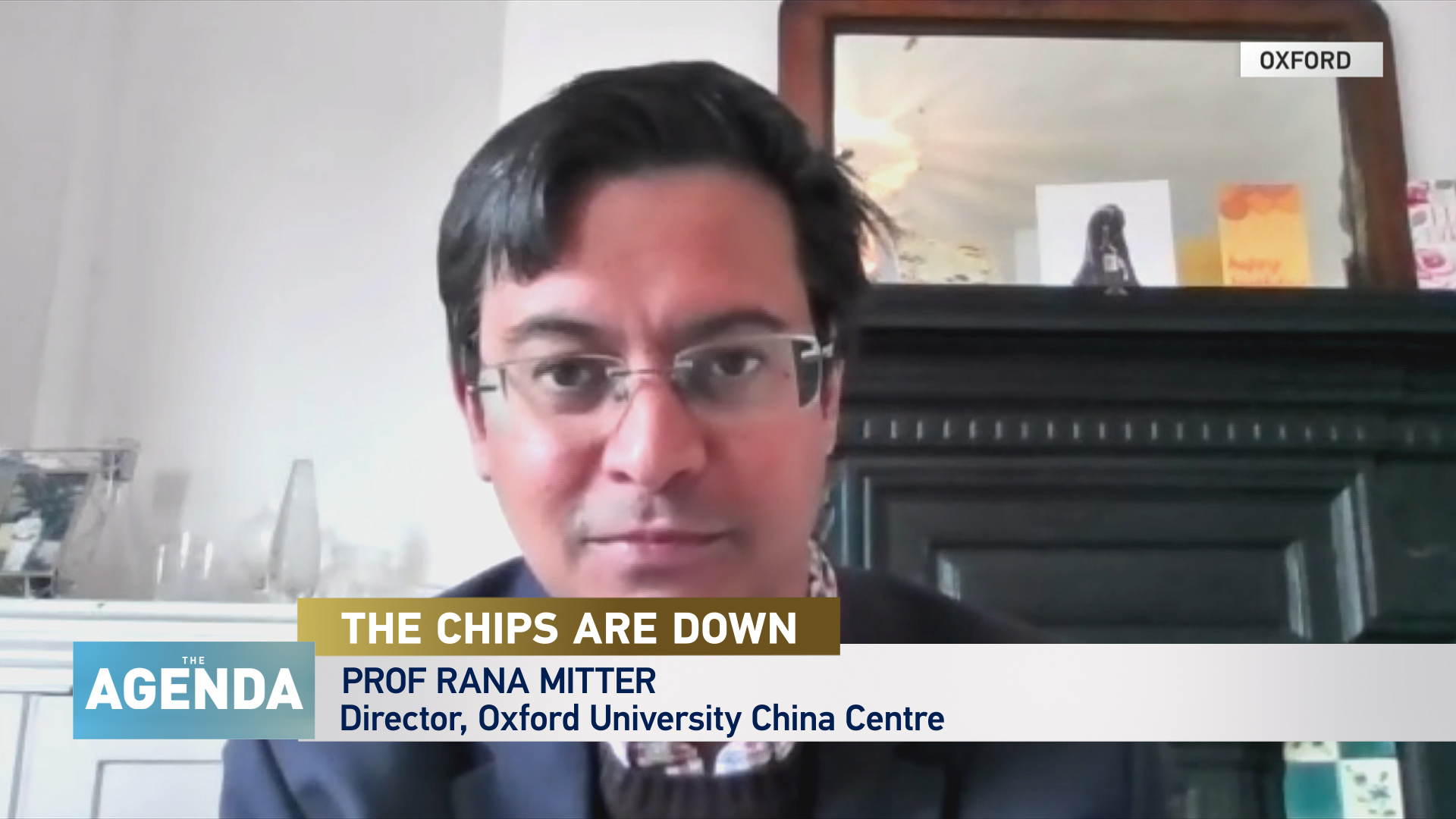07:10

WHAT'S THE ISSUE?
The current shortage of semiconductors may be largely down to issues caused by the COVID-19 pandemic, but of course the existing trade tensions around the world, especially those between China and the U.S., are also playing their part.
And as Professor Rana Mitter, Director of Oxford University's China Centre explains, the race to rise to the top of the semiconductor industry just might be the next geopolitical flashpoint.
MEET THE EXPERT
Rana Mitter is a Professor of the History and Politics of Modern China, and Director of the China Centre at Oxford University.
He is the author of a number of books, including "Modern China: A Very Short Introduction" and the "A Bitter Revolution: China's Struggle with the Modern World." His most recent publication "China's War with Japan, 1937-45: The Struggle for Survival" was named as a 2013 Book of the Year in the Financial Times and the Economist and won the 2014 RUSI/Duke of Westminster's Medal for Military Literature.

WHAT DOES MITTER SAY?
"The United States and China, as two countries, both of which have very strong indigenous tech sectors, are finding that the opportunities for cooperation are becoming fewer and the sense that they're in competition with each other is becoming greater," Mitter tells Stephen Cole.
"China and the U.S. both have a strong interest in making sure that technology standards, capacity for innovation, the ability essentially to also make sure that not just their own countries, but countries which adopt their technologies use their standards."
And China and the U.S. are not the only countries looking to dominate this sector. South Korea and the EU have both recently announced huge investment plans, which could yet prove genuinely disruptive to the industry.
"One of the things that the Trump administration experiences brought home to many European leaders is that it's important to have indigenous capacity within Europe. And that's one of the areas that I suspect there'll be a lot more concentration on in the next few years."


ALSO ON THE AGENDA:
- Malcolm Penn, Founder and CEO of Future Horizons analysts – who has more than 50 years' experience in the semiconductor industry tells Stephen why the current shortage is not really anything new – but does highlight a major structural issue in the industry.
- Jo Shien Ng, Professor of Semiconductor Devices at the University of Sheffield explains why there's no easy fix for the current shortages, and considers concerns over long-term sustainability.

